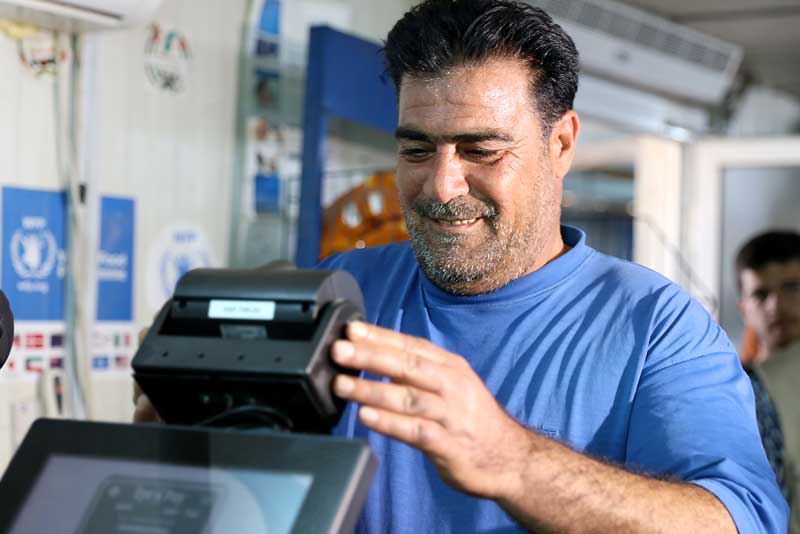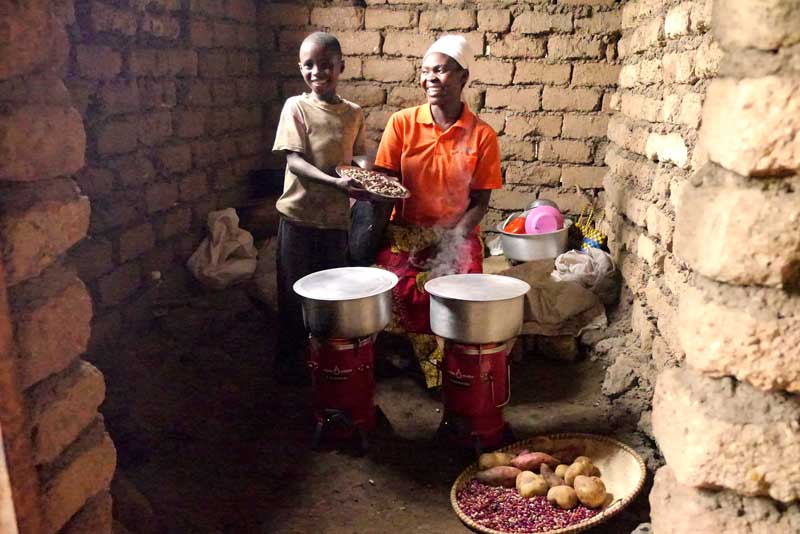By Alison Buckholtz and Andrew Raven
If the eyes are the window to the soul, could irises be the key that unlocks one’s identity?
The Anglo-Jordanian technology company IrisGuard thinks so. Its iris-scanning software and financial platform are being used by humanitarian agencies to authenticate the identities of refugees in Egypt, Iraq, Jordan, Lebanon, and Syria—enabling them to receive food, cash-based assistance, medical treatment, and remittances. This has the potential to transform the delivery of refugee aid, which is often siphoned off by corruption, identity theft, and lack of reliable networks.
Already, 2.7 million refugees from 79 nationalities in Jordan, Lebanon, Syria, Iraq and Egypt have been registered through IrisGuard, which is an IFC client. They now use their eyes to buy food and other essentials at about 200 merchants. The technology is 10 times more accurate than fingerprint analysis.
“Our EyeCloud platform has the potential to help lift vulnerable people out of poverty and contribute to economic development throughout the Middle East, Africa, and the rest of the world,” says IrisGuard co-founder Imad Malhas.
The firm will expand its reach this year by introducing a mobile version of its platform.

A Search for Long-term Solutions
Irisguard is part of a new wave of private companies helping to create economic opportunities for refugees and their host communities. A new report from IFC—Private Sector and Refugees: Pathways to Scale—found that in places like Jordan, Kenya, and Pakistan, private firms are providing refugees and locals with jobs, skills training, and financial services, offering hope to those caught up in one of the worst humanitarian crises in human history.
“As refugee crises worsen, humanitarian aid is no longer enough,” said Sergio Pimenta, IFC’s Vice President for the Middle East and Africa. “We need new, long-term solutions that allow refugees to become self-reliant, and the private sector is uniquely placed to help.”
By the end of 2017, the last year for which statistics are available, more than 68 million people worldwide were forcibly displaced. That is more than the entire population of the United Kingdom—and the most in recorded history.
Governments, aid agencies, and non-governmental organizations have long provided humanitarian aid for refugees, addressing immediate needs such as food, water, and shelter. But given that many refugees will spend years, if not decades, in exile, they also need economic opportunities, the IFC study found.

Creating Conditions for Change
Private companies have the potential to scale-up the refugee-related businesses now operating around the Middle East and Africa. One company doing just that is Sanivation, which provides waste-management and sanitation services in Kenya’s largest refugee camp. It has 31 staff members, both locals and refugees.
Diego Hakspiel, director of Humanitarian Programs at Sanivation, said that while the company’s work benefits refugees, it also makes sound business sense. “We believed we had a value proposition for the camp that was cost-competitive and saw a market opportunity,” he said.
While companies like Sanivation are making a difference, the IFC report found they could be doing much more. They are being held back by a lack of market intelligence, a shortage of financing, and an inability to find the right local partners.
Three things are needed to address those challenges, the report found: policies that enable formal engagement between the private sector, refugees, and host communities; innovative financing mechanisms like venture capital, to provide seed financing for refugee-related projects; and greater sharing of market research on refugees and host communities. All of these will require deeper partnerships between companies, governments, humanitarian groups, and development agencies.
While that may be a tall order, the payoff is worth it, the report found. More than 60 percent of the companies surveyed would like to do more business with refugees and host communities. Once they unlock how, there could be real potential for the private sector to do good while making good.
Join the conversation: #IFCmarkets
Published in May 2019

